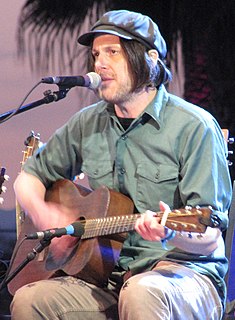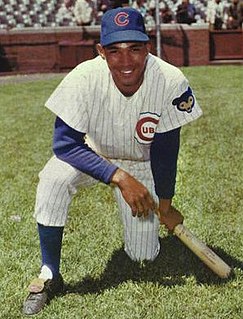A Quote by Ralph Waldo Emerson
The statue is then beautiful when it begins to be incomprehensible, when it is passing out of criticism, and can no longer be defined by compass and measuring-wand, but demands an active imagination to go with it, and to say what it is in the act of doing.
Related Quotes
The act of compassion begins with full attention, just as rapport does. You have to really see the person. If you see the person, then naturally, empathy arises. If you tune into the other person, you feel with them. If empathy arises, and if that person is in dire need, then empathic concern can come. You want to help them, and then that begins a compassionate act. So I'd say that compassion begins with attention.
When they told me there would be a statue erected at Wrigley Field, I was happy with that. I know there will be a meeting place for a lot of people. There will be a conversation every day. They say now, 'I'll meet you at Ernie Banks' statue.' After Sept. 7, they'll say, 'I'll meet you by Billy Williams' statue.'
Science begins with the world we have to live in, accepting its data and trying to explain its laws. From there, it moves toward the imagination: it becomes a mental construct, a model of a possible way of interpreting experience. The further it goes in this direction, the more it tends to speak the language of mathematics, which is really one of the languages of the imagination, along with literature and music. Art, on the other hand, begins with the world we construct, not with the world we see. It starts with the imagination, and then works toward ordinary experience.
I can find no words for what I feel. My consciousness is withdrawn into itself; I hear my heart beating, and my life passing. It seems to me that I have become a statue on the banks of the river of time, that I am the spectator of some mystery, and shall issue from it old, or no longer capable of age.
MOST of the ugliness in the human narrative comes from a distorted quest to possess beauty. COVETING begins with appreciating blessings: MURDER begins with a hunger for justice. LUST begins with a recognition of beauty. GLUTTONY begins when our enjoyment of the delectable gifts of GOD starts to consume us. IDOLATRY begins when our seeing a reflection of God in something beautiful leads to our thinking that the beautiful image bearer is worthy of WORSHIP.
There is none of that feeling about art that you meet everywhere in Europe. There you will hear people say, 'Oh, you must see such-and-such a statue at 4 o'clock in the afternoon; then the light is beautiful,' or, 'See this monument in the early morning; the light is best for it then.' Do you ever hear anything like that from an American?
Let me offer you, metaphorically, two magic wands that have sweeping powers to change society. With one wand you could wipe out all racism and discrimination from the hearts and minds of white America. The other wand you could wave across the ghettoes and barrios of America and infuse the inhabitants with Japanese or Jewish values, respect for learning, and ambition. ... I suggest that the best wand for society and for those who live in the ghettoes and barrios would be the second wand.
I think the success of every novel - if it's a novel of action - depends on the high spots. The thing to do is to say to yourself, 'Which are my big scenes?' and then get every drop of juice out of them. The principle I always go on in writing a novel is to think of the characters in terms of actors in a play. I say to myself, if a big name were playing this part, and if he found that after a strong first act he had practically nothing to do in the second act, he would walk out. Now, then, can I twist the story so as to give him plenty to do all the way through?










































